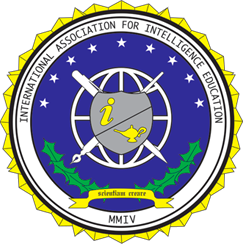Apply geographic information science to intelligence analysis.
Program Overview
Our graduate credit certificate in Geospatial Intelligence Analytics is for aspiring geospatial intelligence professionals as well as those with experience in the field who are only able to participate part-time and at a distance, while maintaining professional responsibilities. Students can take foundational or advanced courses depending on their level of expertise. The program promotes sound theory, methodologies, techniques, ethics, and best practices in the professional application of geospatial intelligence. The 15-credit curriculum integrates the geospatial information science and intelligence disciplines in a synergistic manner. The program is well suited for the geospatial intelligence professional serving outside the continental U.S.
Apply geographic analysis tools, methods, and techniques to produce geospatial intelligence for applications in national security, disaster response, environmental resource preservation, and other industry scenarios.
Learn about the relationships between culture and civil security and the process of geographically analyzing social, political, economic, and demographic information to understand human history, institutions, and behaviors.
Leverage object-based image analysis methods, automate feature extraction techniques, assess accuracy, process imagery from a variety of common sources, and apply image analysis to real-world applications.
Combine spatial thinking, information literacy, and geospatial technology skills with knowledge of cultural and political geography to solve complicated problems in a variety of intelligence fields.
Prepared for the Future
Graduates of this program will have a strong foundation in geospatial intelligence and its many applications in a variety of fields. Many students continue their studies in one of our online master’s degree programs.
USGIF Accreditation
Penn State’s GEOINT certificates are fully accredited by the United States Geospatial Intelligence Foundation (USGIF). USGIF’s accreditation program was established in 2005 to encourage higher education institutions to develop academic certificates that prepare students to advance the geospatial intelligence field. When you earn a GEOINT certificate from Penn State, you will also receive a certificate from the USGIF.
The Geospatial Intelligence program is academic partners with:
 |
 |
 |
 |
Curriculum
The Graduate Certificate in Geospatial Intelligence Analytics is a 15-credit, fully online certificate program. Credits earned in the certificate can be applied toward the Master of Professional Studies in Homeland Security, the Master of GIS, or the Master of Science in Spatial Data Science degree programs.
The typical student course load is one course per 10-week session. At that pace, students can complete the certificate in approximately one year. Time off can be taken between courses if necessary.
| COURSE NUMBER | TITLE | NEXT OFFERING | TECHNOLOGY |
|---|---|---|---|
| GEOG 571 * | Intelligence Analysis, Cultural Geography, and Homeland Security | Summer 2026 | ArcGIS Online, ArcGIS Story Maps, Google MyMaps, Portal for ArcGIS |
| GEOG 882 * | Geographic Foundations of Geospatial Intelligence | Spring 2, 2026 | |
| GEOG 884 ** | Spatial Data Science and Intelligence Analysis | Spring 2, 2026 | ArcGIS Desktop, ArcGIS Online, ArcGIS Pro, CARTO, GeoDa, QGIS |
| GEOG 483 ** | Problem Solving with GIS | Spring 2, 2026 | ArcGIS Online, ArcGIS Pro, ArcGIS Story Maps |
| GEOG 883 *** | Remote Sensing Image Analysis and Applications | Summer 2026 | Amazon Web Services, ArcGIS, ArcGIS Online, ArcGIS Pro, eCognition Developer |
| GEOG 479 *** | Spatial Data Science for Cyber and Human Social Networks | Spring 2, 2026 | NodeXL |
| GEOG 480 *** | Exploring Imagery and Elevation Data in GIS Applications | Spring 2, 2026 | ArcGIS Pro |
| GEOG 885 | Analytical Methods and GEOAI in Geospatial Intelligence | Summer 2026 | ArcGIS, ArcGIS Online, ArcGIS Story Maps |
Each of these courses is worth 3 credits.
*Students may take GEOG 571 OR GEOG 882 in order to earn the GEOINT Certificate.
**Students may take GEOG 884 OR GEOG 483 in order to earn the GEOINT Certificate.
***Students may take GEOG 883 OR GEOG 479 OR GEOG 480 in order to earn the GEOINT Certificate.
With mentorship from a faculty advisor, students complete a hands-on project using GIS and/or remote sensing tools and techniques to demonstrate analytic skills, high-level writing competency, and the ability to identify and investigate a real-world problem from a geospatial intelligence perspective.
| COURSE NUMBER | TITLE | NEXT OFFERING | TECHNOLOGY |
|---|---|---|---|
| GEOG 594A | Culminating Experiences in Geospatial Intelligence | Summer 2026 | Varies |
| GEOG 596I * | Independent Study in Geospatial Intelligence | N/A | Varies |
*Students may take Geography 594A OR Geography 596I for their culminating experience.